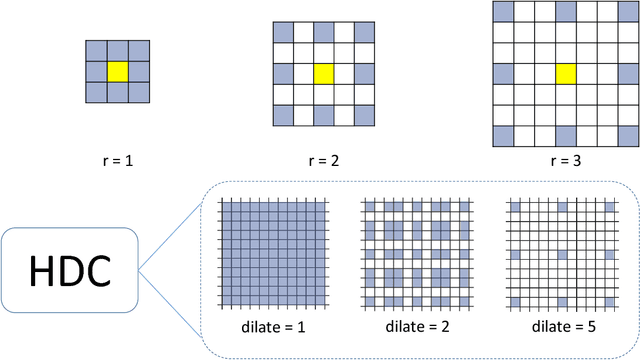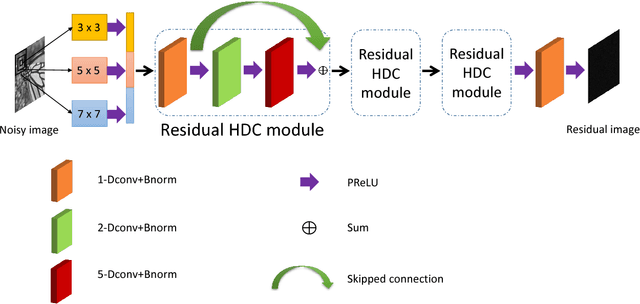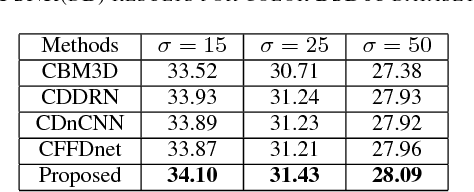A Multiscale Image Denoising Algorithm Based On Dilated Residual Convolution Network
Paper and Code
Dec 21, 2018



Image denoising is a classical problem in low level computer vision. Model-based optimization methods and deep learning approaches have been the two main strategies for solving the problem. Model-based optimization methods are flexible for handling different inverse problems but are usually time-consuming. In contrast, deep learning methods have fast testing speed but the performance of these CNNs is still inferior. To address this issue, here we propose a novel deep residual learning model that combines the dilated residual convolution and multi-scale convolution groups. Due to the complex patterns and structures of inside an image, the multiscale convolution group is utilized to learn those patterns and enlarge the receptive field. Specifically, the residual connection and batch normalization are utilized to speed up the training process and maintain the denoising performance. In order to decrease the gridding artifacts, we integrate the hybrid dilated convolution design into our model. To this end, this paper aims to train a lightweight and effective denoiser based on multiscale convolution group. Experimental results have demonstrated that the enhanced denoiser can not only achieve promising denoising results, but also become a strong competitor in practical application.
 Add to Chrome
Add to Chrome Add to Firefox
Add to Firefox Add to Edge
Add to Edge